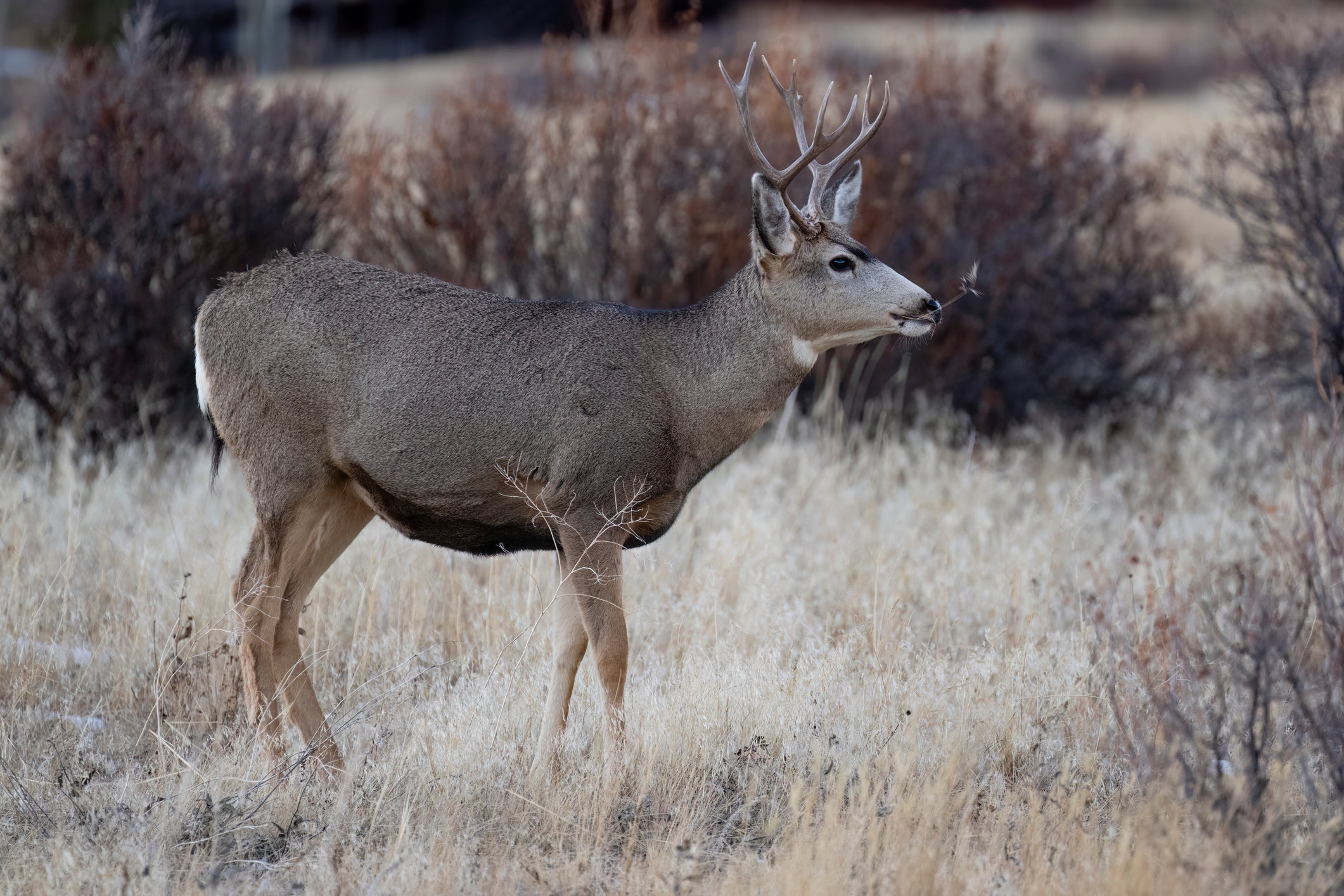Scientists warn ‘zombie deer disease’ could spread to humans as cases surge across US
Chronic wasting disease was found in 800 samples of deer, elk and moose across Wyoming, United States
Scientists have warned a “zombie deer disease” could spread to humans after hundreds of animals were infected with the illness in the US over the last year.
Chronic wasting disease (CWD), which leaves animals drooling, lethargic, stumbling and with a blank stare, has been found in 800 samples of deer, elk and moose across Wyoming.
But experts warned the disease was a “slow-moving disaster” and urged governments to prepare for the possibility of it spreading to humans.
“The mad cow disease outbreak in Britain provided an example of how, overnight, things can get crazy when a spillover event happens from, say, livestock to people,” CWD researcher Dr Cory Anderson told The Guardian.
“We’re talking about the potential of something similar occurring. No one is saying that it’s definitely going to happen, but it’s important for people to be prepared.”

In the UK, 4.4m cattle were slaughtered after mad cow disease spread in the 1980s and 1990s due to bovine being fed infected meat and bonemeal.
The disease, which is usually fatal for cattle, infects the central nervous system and leaves the animals with aggressive symptoms and a lack of coordination. Since 1995, 178 human deaths have been attributed to the human variant.
In 2017, 7,000 to 15,000 CWD-infected animals a year were being consumed by humans, according to the Alliance for Public Wildlife.
The figure was expected to rise by 20 per cent annually. In Wisconsin, thousands of people have probably eaten meat from infected deer, Dr Anderson said.
CWD is extremely hard to eradicate once an environment is infected. It can persist for years in dirt or on surfaces, and scientists report it is resistant to disinfectants, formaldehyde, radiation and incineration at 600C (1,100F).
It comes after US biotech company Ginkgo Bioworks warned illnesses transmitted from animals to humans could kill 12 times as many people in 2050 than they did in 2020.
The company said epidemics caused by zoonotic diseases - known as spillovers - could be more frequent in future due to climate change and deforestation.
Between 1963 and 2019, epidemics increased by almost 5 per cent every year, with deaths up by 9 per cent, according to the group’s research.
“If these annual rates of increase continue, we would expect the analysed pathogens to cause four times the number of spillover events and 12 times the number of deaths in 2050 than in 2020,” it warned.
Join our commenting forum
Join thought-provoking conversations, follow other Independent readers and see their replies
Comments
Bookmark popover
Removed from bookmarks